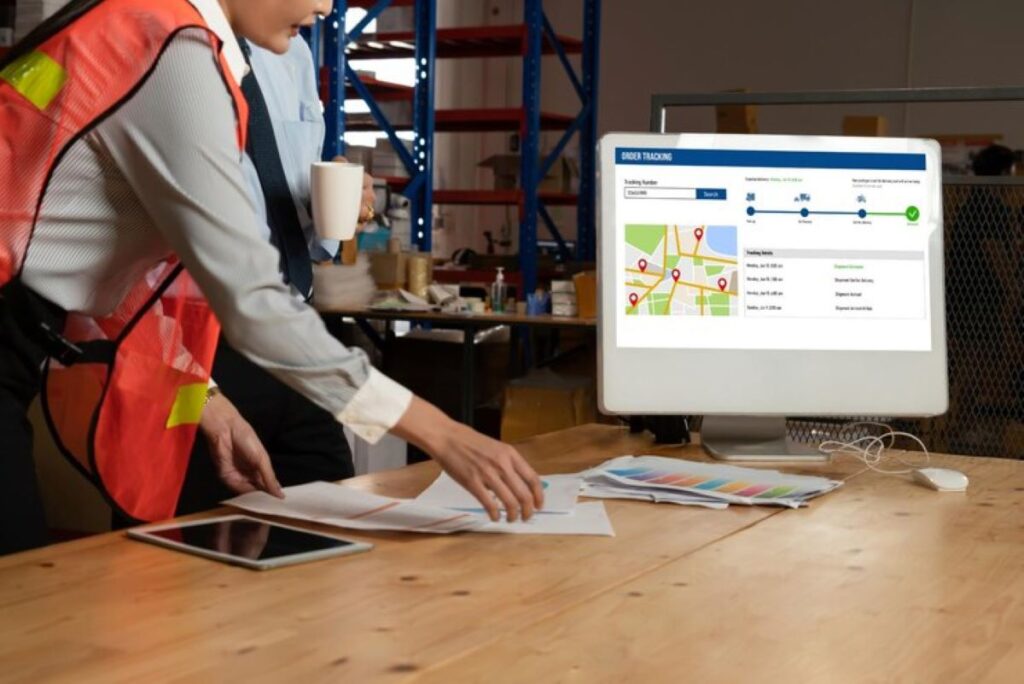To find a surveyor in Sydney can seem daunting. The role of a land surveyor is critical in various property dealings, and understanding their function will help you to make an informed decision. This guide aims to clarify the responsibilities of land surveyors, the essential qualifications required, the traits to look for, and how to appropriately locate a surveyor in your area.
Understanding the Role of a Land Surveyor
Land surveyors are professionals who measure and map out land boundaries. Their expertise is vital for ensuring that property lines are accurately defined, which in turn protects property rights and avoids disputes between neighbours. Effective land surveying is not merely about determining the limits of a plot of land; it also provides valuable information necessary for various legal processes.
The Importance of Land Surveying in Property Transactions
Land surveying plays a crucial role in property transactions. It ensures that all parties involved have an accurate understanding of the property’s boundaries, which is essential in preventing legal disputes. Prospective buyers often require a land survey before finalising a purchase, as it helps identify if there are any encroachments or easements affecting the property.
Moreover, lenders commonly request a land survey before approving loans for real estate transactions. A precise survey provides assurance that the property is worth the investment and meets regulatory requirements. For construction projects, obtaining a land survey is equally important, as it informs stakeholders about zoning laws and property constraints.
In addition to these practical considerations, land surveys can also reveal historical aspects of a property, such as previous ownership and any alterations made over time. This historical context can be invaluable for buyers who wish to understand the full scope of their investment. Furthermore, a thorough survey can uncover potential issues that may not be immediately visible, such as underground utilities or environmental restrictions, which could significantly impact future development plans.
Key Responsibilities of a Land Surveyor
The responsibilities of land surveyors extend beyond merely measuring land. They are tasked with a range of duties, including conducting site inspections, compiling and analysing data, and producing detailed reports and maps. Land surveyors also often collaborate with other professionals, including architects and engineers, to provide precise land information essential for the planning and execution of projects.
Additionally, they must ensure compliance with local laws and regulations, which may vary significantly across different regions. Being well-versed in the legislative framework surrounding land use is critical for mitigating legal issues that may arise during and after a project. This knowledge not only helps in adhering to current regulations but also in anticipating future changes that could affect land use and property development. Furthermore, land surveyors often utilise advanced technology, such as GPS and GIS (Geographic Information Systems), to enhance the accuracy of their surveys and improve the efficiency of their work, allowing for more comprehensive analyses of the land in question.
Essential Qualifications for a Professional Land Surveyor
To become a professional land surveyor, certain qualifications are essential. These qualifications typically encompass a formal education in surveying or a related field, alongside necessary certifications or licences to practice in Sydney. Understanding the educational and certification pathways can help you find a qualified professional.
Educational Requirements for Land Surveyors
A degree in land surveying, geomatics, or a closely related field is generally the minimum requirement for aspiring land surveyors. Universities and colleges in Australia offer specialised programmes that equip students with the theoretical knowledge and practical skills necessary for surveying. Courses cover topics such as mathematics, physics, and legal aspects of property and land use.
Some land surveyors may also choose to pursue advanced degrees to further enhance their expertise. Additionally, ongoing professional development is crucial, as technological advancements continue to shape the field of land surveying. For instance, the integration of Geographic Information Systems (GIS) and satellite-based technologies has revolutionised the way land surveyors collect and analyse data, making it imperative for professionals to stay abreast of these innovations through workshops and specialised training sessions.
Necessary Certifications and Licences
In Australia, land surveyors must obtain a licence to practice legally. The specific requirements for licensure may vary by state, but generally involve passing an examination and providing proof of education and experience. Certifications from recognised professional organisations may also enhance a land surveyor’s credentials and assure potential clients of their competency.
It is advisable to check the licencing requirements specific to New South Wales, which governs qualified surveyors in Sydney. This information is generally available on official government websites or through local surveying associations. Furthermore, many land surveyors opt to join professional bodies such as the Surveying and Spatial Sciences Institute (SSSI), which not only provides networking opportunities but also offers resources for continuing education and professional standards. Engaging with such organisations can significantly bolster a surveyor’s professional profile and open doors to further career advancement in this dynamic field.
Traits to Look for in a Top-Notch Land Surveyor
When searching for a land surveyor, particular traits and skills can differentiate a good professional from a great one. It’s important to consider their technical skills as well as their interpersonal abilities, as both contribute to successful surveying projects.

Technical Skills and Expertise
Possessing strong technical skills is paramount for any successful land surveyor. They should have a profound understanding of surveying technology, tools, and software that are essential for accurate measurements and data processing. Familiarity with geographic information systems (GIS) and computer-aided design (CAD) software is a considerable advantage, as these technologies play a significant role in modern surveying tasks.
Experience in handling various types of projects—ranging from residential land surveys to large-scale commercial developments—can reflect a land surveyor’s capability. Their ability to adapt to differing project scales and complexities is vital for meeting client expectations. Furthermore, a top-notch land surveyor should also stay abreast of the latest advancements in surveying technology, such as drones and 3D scanning, which can significantly enhance the accuracy and efficiency of their work. Continuous professional development through workshops and certifications can also indicate a commitment to excellence in their field.
Communication and Interpersonal Skills
In addition to technical expertise, communication skills are incredibly important for land surveyors. They frequently work in teams and interact with clients, local governments, and contractors. Being able to convey complex information clearly and effectively ensures that all stakeholders remain informed throughout the process.
Interpersonal skills such as negotiation and problem-solving are also beneficial. Land surveyors often encounter unexpected challenges during projects, so having the ability to collaborate on solutions is essential for maintaining timelines and budgets. Moreover, a land surveyor’s ability to build rapport with clients can lead to long-term relationships, which are invaluable in a field where trust and reliability are paramount. The capacity to listen actively and understand client needs can further enhance project outcomes, ensuring that the final results align closely with the client’s vision and requirements.
How to Find a Reputable Land Surveyor in Sydney
Finding a reputable land surveyor in Sydney requires some research and due diligence. Fortunately, there are numerous resources available to assist you in this search, ensuring you select a qualified professional for your surveying needs.
Utilising Online Resources and Directories
The internet provides valuable tools for finding experienced land surveyors. Numerous online directories list licensed surveyors and their areas of expertise, making it easier to narrow down your options. Websites of local surveying associations offer searchable databases that can help you identify qualified professionals who operate in Sydney.
Moreover, maintaining a watchful eye on industry blogs, forums, and social media groups can provide insight into the reputation of land surveyors in the community. Reviews and ratings can also give potential clients an idea of the quality of services offered by different professionals. Engaging with these platforms allows you to ask questions directly to past clients, gaining first-hand accounts of their experiences, which can be invaluable in making your decision.
Seeking Recommendations and Reading Reviews
A personal recommendation can often lead to finding an excellent land surveyor. Consult with family, friends, or colleagues who have previously employed surveying services. Their experiences can guide you to trustworthy professionals who deliver high-quality work.
Additionally, reading online reviews can provide further insight into the impact of a surveyor’s work and client satisfaction levels. Look for surveyors with consistently high ratings and positive feedback about their communication, professionalism, and expertise. It is also beneficial to check if the surveyor has experience with specific types of projects, such as residential developments, commercial properties, or land subdivisions, as this can significantly influence the quality and relevance of their services to your particular needs.
Another avenue worth exploring is local community boards or neighbourhood groups, where residents often share their experiences with various service providers, including land surveyors. Engaging with these communities can yield recommendations that you might not find through traditional online searches. Furthermore, many surveyors may also provide case studies or portfolios of their past work, which can offer a clearer picture of their capabilities and the quality of their output.
See Also : What to Expect from a Professional Surveyor in Sydney
Questions to Ask a Potential Land Surveyor
Once you have identified potential land surveyors to consider, it is important to ask them specific questions to ensure they meet your project needs. This will help you vet their qualifications and find the best match for your requirements.

Inquiring About Experience and Specialisation
When interviewing potential land surveyors, inquire about their level of experience and areas of specialisation. Those with diverse project portfolios can offer valuable insights into how to approach your particular needs.
Ask about their recent projects and whether they have dealt with situations similar to yours. This helps to confirm their capability to handle your project effectively. A good surveyor will be prepared to provide references from past clients to validate their expertise.
Discussing Fees and Service Packages
The cost of services is another crucial aspect to discuss. Ensure you understand their pricing structure, including whether they charge a flat fee or hourly rates. Be clear about what is included in the service package to avoid misunderstandings later on.
Some surveyors may offer multiple service packages that include comprehensive land surveys along with consultations and additional support. Knowing this in advance can help you select a land surveyor who fits your budget while still delivering quality work.
In conclusion, finding the best land surveyor in Sydney involves understanding their role, assessing their qualifications, and evaluating their skills. With a little research and some targeted questioning, you can ensure that you select a land surveyor who will meet your property needs successfully.

